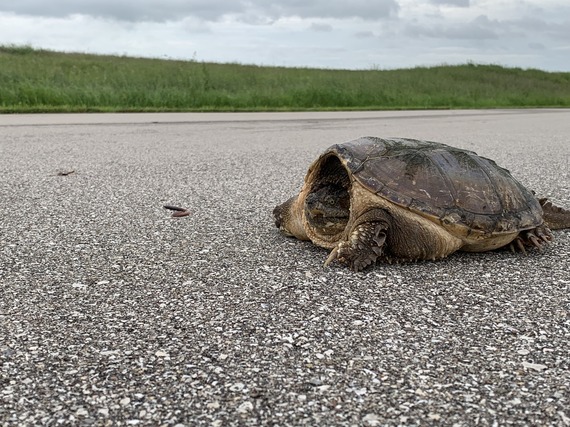

About one in 10 Americans over the age of 60 have experienced abuse. On Elder Abuse Awareness Day this Saturday, June 15, we promote a better understanding of the abuse and neglect of our elderly individuals.
As people age, they may be at higher risk of facing certain types of abuse. Older members of our communities can experience neglect, physical, emotional, financial, or sexual abuse. Facing this abuse has serious health, financial, and social consequences, including physical injuries, premature death, depression, cognitive decline, financial ruin and placement in nursing homes. The abuse of our elderly not only affects older individuals, but also has an impact on all of us.
“It is imperative we take care of and look after our elderly,” says Prosecutor Tara Coats Hunt. “When our elderly adults face neglect or abuse, we lose their valuable participation in our communities. By creating a community where elderly individuals feel safe and appreciated, we will be blessed with their positive contributions to our community.”
It’s important to know how to identify, address and prevent abuse in the elderly of our community. We should learn the signs of abuse, which include physical signals like unusual weight loss, the absence of physical aids like glasses or medications, unexplained injuries and unattended medical needs. Emotional and behavioral signs of abuse may include increased fear or anxiety, isolation and unusual changes in behavior or sleep. Financial signs of abuse may also be present, involving fraudulent signatures on financial documents, unusual or sudden changes in spending patterns, or unpaid bills.
No matter our age, it is up to all of us to prevent and address elder abuse. Look for warning signs, call, and visit loved ones to prevent isolation, talk to friends and family about how to watch over our elders, and be a friendly face to the older individuals of our community.
If you are experiencing abuse or suspect abuse of an elderly person, the Indiana Adult Protective Services (APS) and the Indiana Long-Term Care Ombudsman program can help. Visit the APS website or call (812) 883-5988. In cases of urgent danger, call 911 or contact local law enforcement.

Researchers at Purdue University are studying the willingness of hunters and non-hunters to reduce the spread of chronic wasting disease (CWD) in white-tailed deer.
CWD is a fatal neurological disease affecting deer and is caused by a misfolded prion that damages the animal’s nervous system. CWD is contagious to deer and can spread through deer-to-deer contact or through contaminated environments. No cases of CWD have been recorded in humans.
Information collected may help inform Indiana DNR’s response to CWD. Participants will answer online survey questions and use a web app that shows how CWD may spread. The activity and survey questions take about 30 minutes to complete. The study is open to everyone 18 years old or older. If you have already completed the survey, you are now able to participate again. All that is required to participate is a computer or tablet. Participate in the study online.
For questions about this study, please email the research team at

This summer, more turtles will be crossing roadways to find a place to nest. Here’s how you can lend a helping hand:
Turtles that are crossing roads should not be removed from the area, as they will seek to return to their home range, even if it means spending the rest of their life trying. If it is safe to do so, you can move turtles off the roadway in the same direction they were already heading. Move them by grasping the back of the top shell.
If you see a snapping turtle trying to cross the road, be aware that grabbing a snapping turtle’s tail can damage its spine. Instead, snapping turtles can be held by the top of the back of their shell and leveraged upward to handle them safely for both parties.
Turtles DO NOT make good pets!
• Turtles require time and money for proper care, and some species can live up to 50 years or more.
• Pet turtles do not like to be held and are loners; therefore, they can become boring pets for children. Without this special light, many health issues arise such as metabolic bone disease.
• It is very important to know what kind of species you want and the care it needs before you acquire a pet turtle. Many need special food and tanks.
◦ Each species has different feeding requirements, with some being strictly carnivores or herbivores. Northern map turtles, for example, have restricted diets that must include snails, aquatic insects and crayfish. Some species of aquatic turtles, such as the red-eared slider, northern map turtle, and softshells, grow up to 12 inches long, requiring a large tank for swimming and basking.
• Land turtles need a large pen, with sufficient substrate, properly sized water bowl, and a hide area, as well as heat. Some require more humidity than others.
• If you no longer want your pet turtle, you cannot release into the wild because it is not likely to survive.
◦ It will have to find its own food, deal with the elements and deal with predators.
◦ These once-captive turtles are also likely to transmit diseases to wild turtle populations.
• Turtles can carry salmonella bacteria.
◦ The Centers for Disease Control and Prevention recommend that children, pregnant women, and persons with compromised immune systems avoid contact with reptiles to avoid getting salmonella.
◦ The DNR does not encourage the keeping of turtles as pets, but does allow it if the native turtle species is obtained legally with a hunting or fishing license.
It is illegal to sell wild turtles
Many native, wild-caught turtles are still sold as pets, even though this practice is illegal in Indiana. The collection of wild turtles has caused many species to become endangered, especially when combined with habitat loss, water pollution and predators. Predators such as raccoons eat a large number of turtle eggs each year, and some turtle species do not even breed until they are several years old, meaning that it can take many years for a population to become established.
You can help protect Indiana’s turtles by helping to preserve turtle habitat, especially wetlands, through local conservation organizations or the Indiana Nongame Wildlife Fund.
Indiana’s native species of turtles.
All native species of turtles that were taken from the wild or are listed as an endangered species CANNOT be sold in Indiana.
• Alligator snapping turtle (endangered)
• Eastern box turtle (special concern, protected)
• Blanding’s turtle (endangered)
• Eastern mud turtle (endangered)
• Eastern musk turtle
• False map turtle (special concern)
• Northern map turtle
• Ornate box turtle (endangered)
• Ouachita map turtle
• Red-eared slider
• River cooter (endangered)
• Smooth softshell turtle
• Snapping turtle
• Spiny softshell turtle
• Spotted turtle (endangered)
Additional Information on turtles:
• Reptile and amphibian regulations
• Bag limits and season dates
• Eastern box turtle Information
• Buy a hunting or fishing license
The MFA Oil Foundation has awarded a grant to the Southern Indiana Junior Rodeo to assist with purchasing livestock panels. The MFA Oil Foundation provides support to nonprofit organizations that are working to improve communities where MFA Oil has a significant concentration of members and employees. Since it was established in 1998, the foundation has awarded more than three million dollars in grants.
MFA Oil Senior Director of Employee Engagement and Culture Tom May described the MFA Oil Foundation as “a program that allows our company to give support back to the rural communities that are the foundation of our business. The grants the Foundation awards help support many youth programs and organizations active in addressing and solving community problems and improving the quality of life.”
SalemLeader.com
Leader Publishing Company of Salem, Inc.
P.O. Box 506
117-119 East Walnut Street
Salem, Indiana. 47167
Phone: 812-883-3281 | Fax: 812-883-4446
Business Hours:
Mondays through Fridays, 9:00am - 5:00pm
News:
news@salemleader.com
Office:
office@salemleader.com
Publisher:
publisher@salemleader.com
Business
- More Business News
- Go To Guide
- Business Directory
- Real Estate
- Auctions
Education
- More Education News
Opinion
- Editorials
- Letters to the Editor
- Columns
- Unsung Heroes
- Days Gone By
- In the Garden
- Guest Columns
- Reader's Poll
- Salem Leader Forum
- Questions and Answers
Church
- Bible Aerobics
- Church News
- Church Directory










